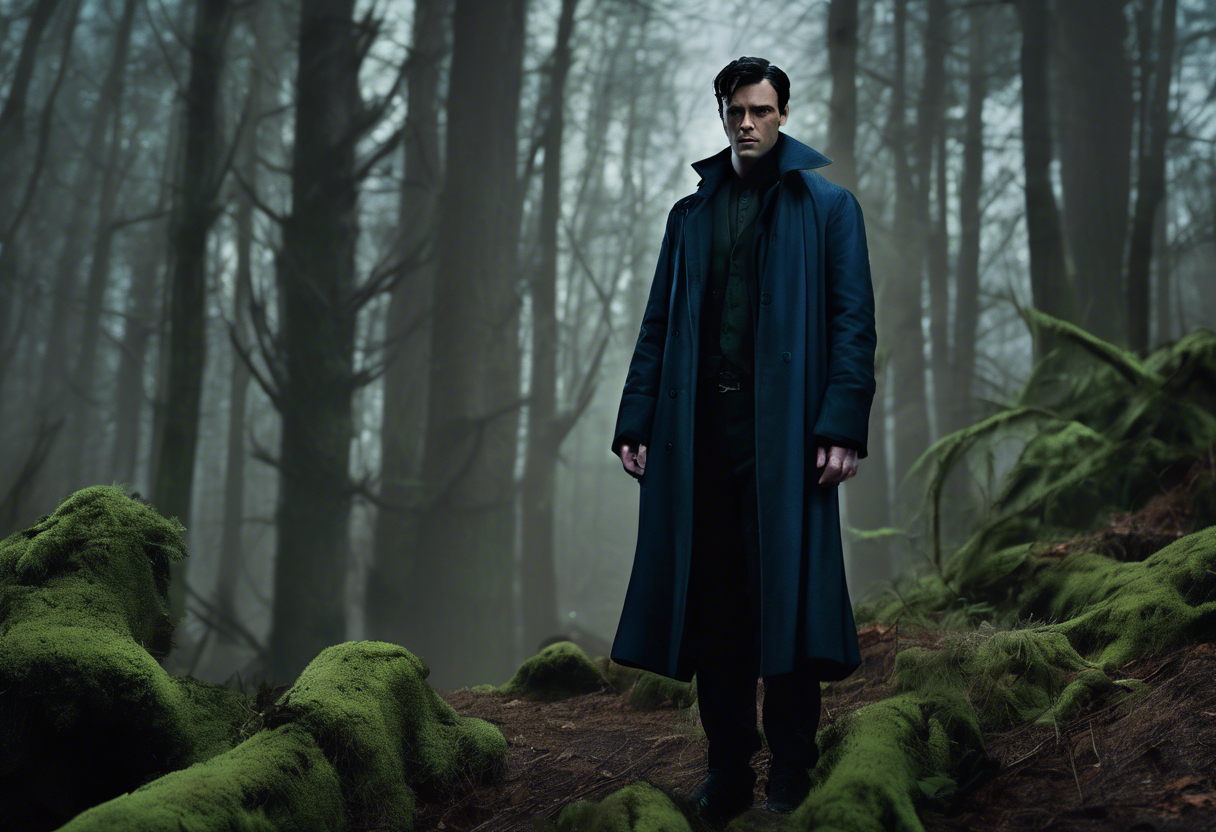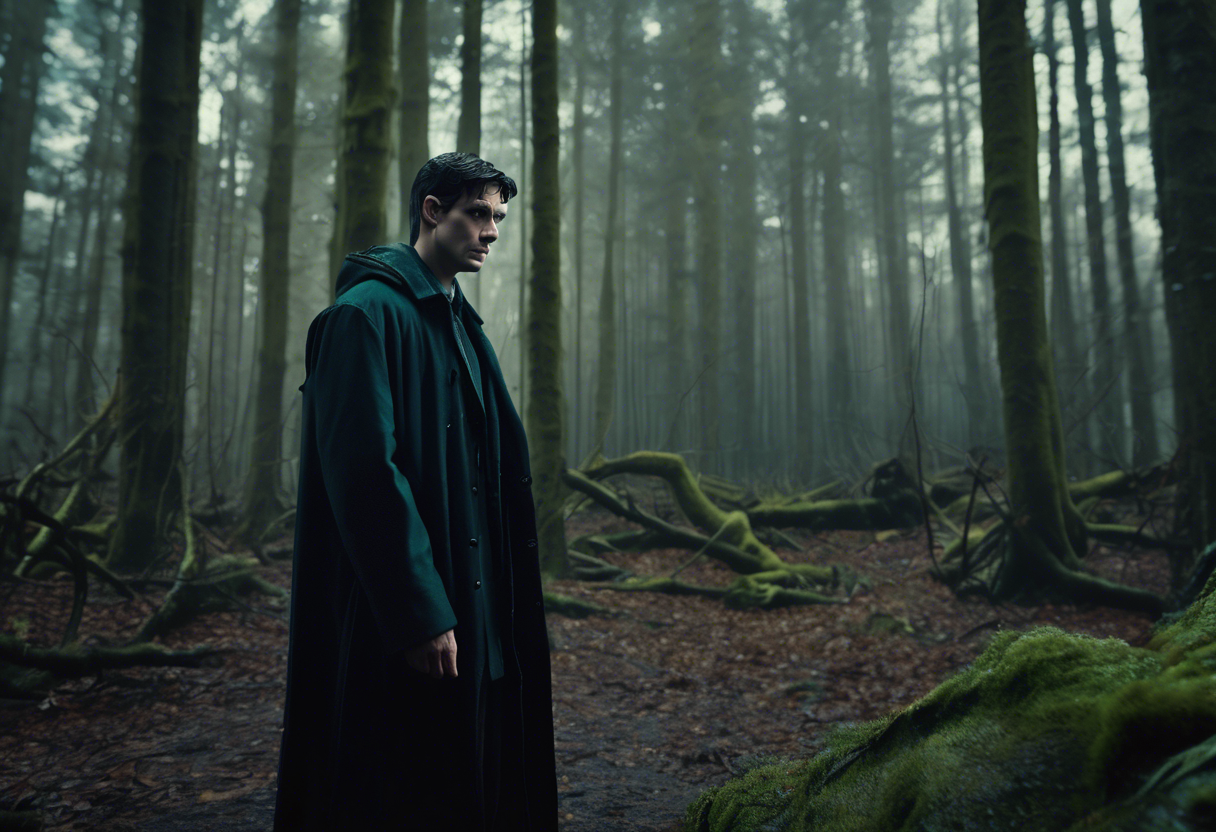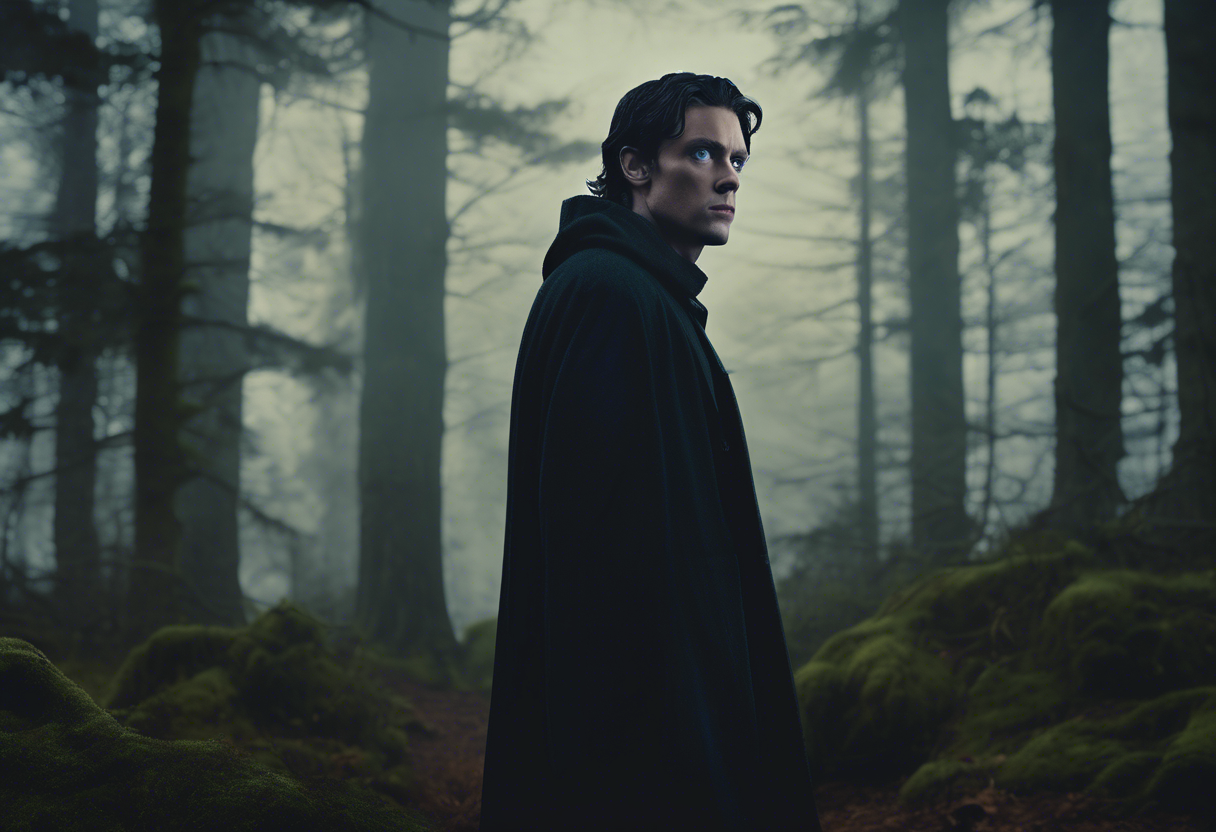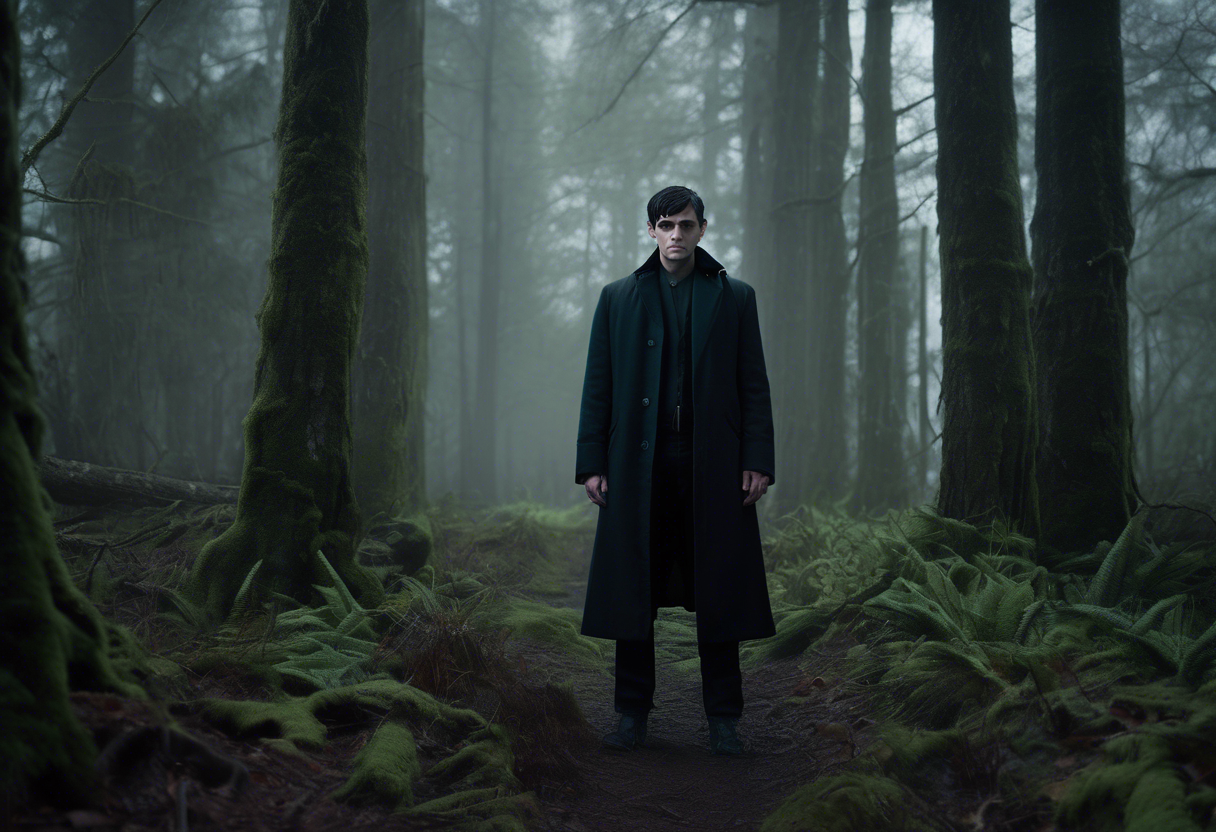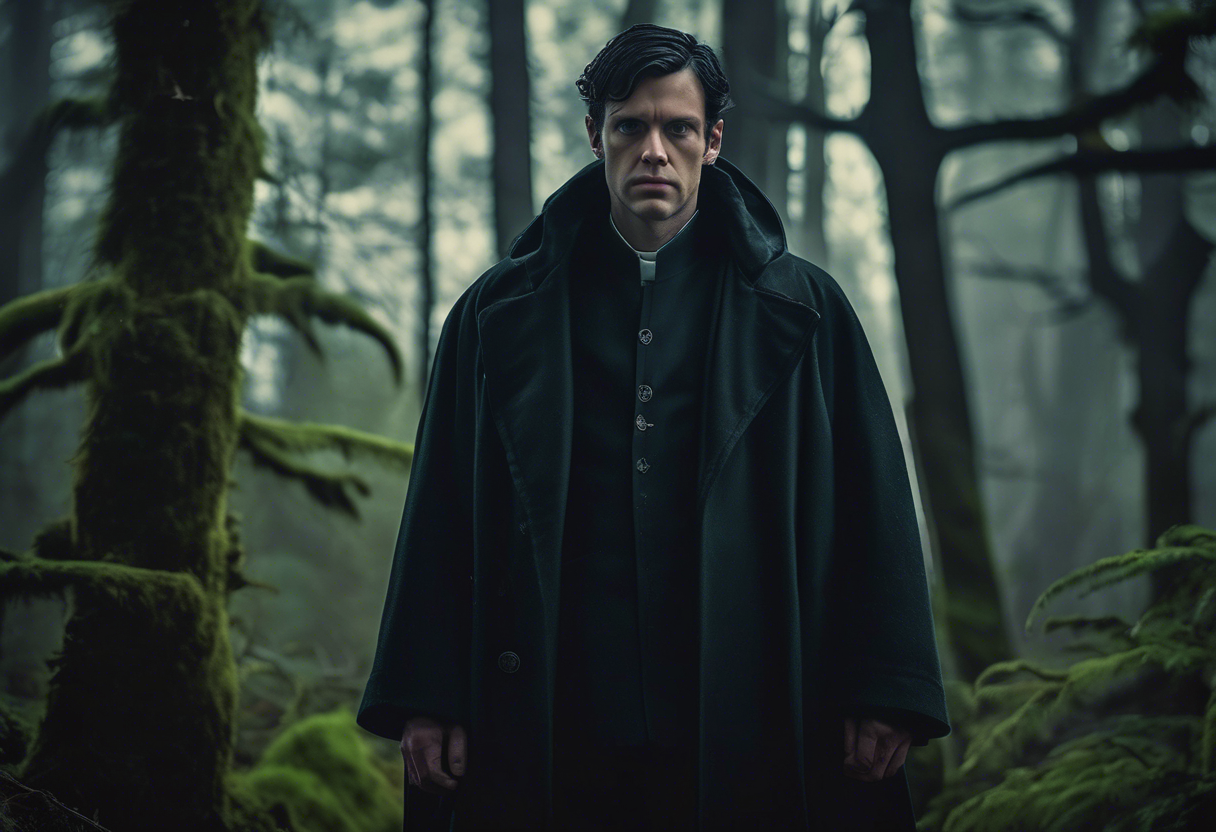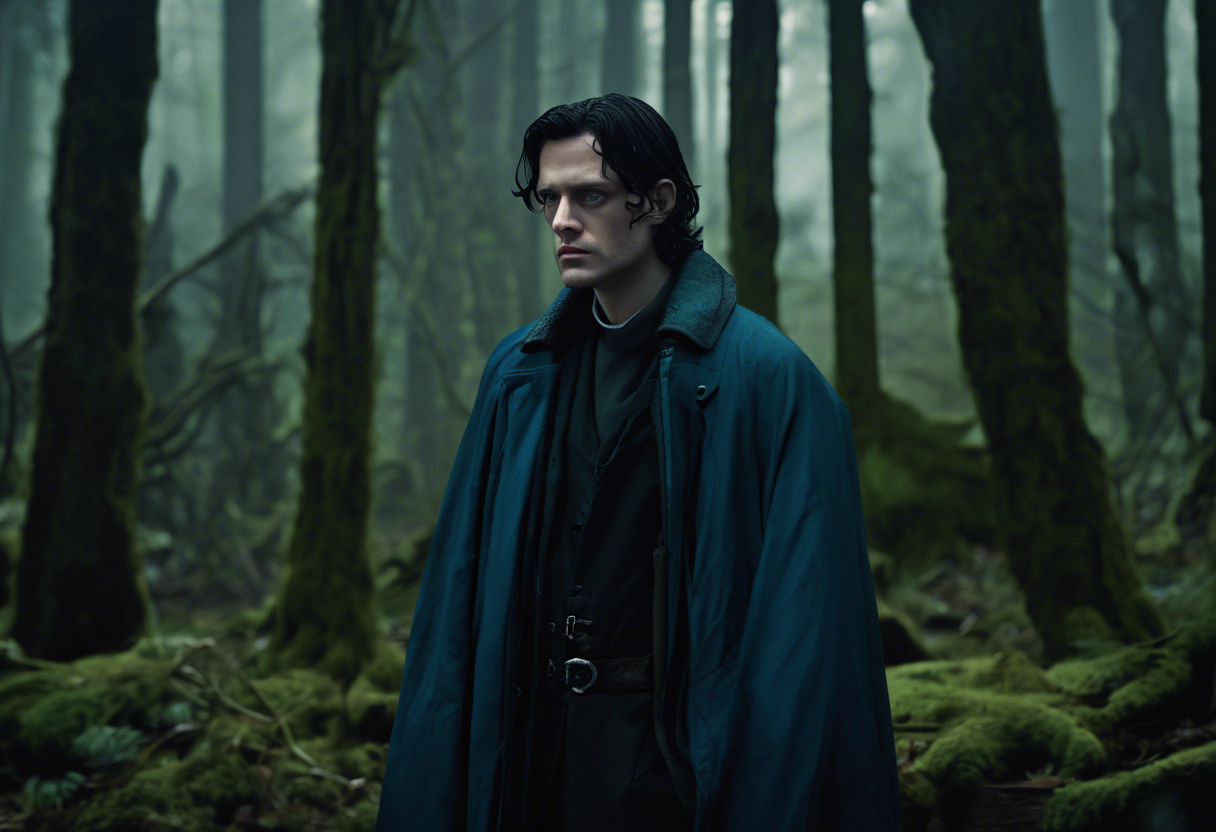Contents
Noah from the Netflix Series Dark
Introduction
Noah, also known as Hanno Tauber, is a pivotal and complex character in the Netflix series Dark. He is a devoted follower of the mysterious and sinister organization known as Sic Mundus, and his actions are deeply intertwined with the series’ intricate narrative of time travel, family secrets, and the cyclical nature of fate.
Noah’s origins are rooted in his family connections; he is the son of Bartosz and Silja Tiedemann and the brother of Agnes Nielsen [1][3]. This familial background is crucial as it ties him into the web of relationships that span multiple generations in the town of Winden.
As a character, Noah is defined by his unwavering dedication to the cause of Sic Mundus and its leader, Adam. He often poses as a priest at St. Christopher’s Church in Winden, using this facade to carry out his true mission: conducting time travel experiments and kidnapping children to further the goals of Sic Mundus [3][5].
Noah’s significance in the series extends beyond his role as a secondary antagonist; he embodies themes of faith, sacrifice, and the consequences of playing with time. His character draws parallels with literary and media traditions that explore the complexities of morality and the dangers of blind faith.
Role in the Series
Noah’s storyline is deeply embedded in the series’ complex timeline. He travels through time, often appearing in different eras to execute his plans. One of his most notable actions is the kidnapping and experimentation on young boys, including Erik Obendorf and Mads Nielsen, as part of his time travel experiments in 1953 and 1986 [3][5].
In the early seasons, Noah is seen working closely with Helge Doppler, assisting him in building a time travel chair. This collaboration leads to several key events, including the disappearance of several children and the eventual discovery of their corpses near the nuclear power plant [5].
Noah’s relationships with other characters are multifaceted. He interacts with Jonas Kahnwald and Claudia Tiedemann, particularly in his efforts to stabilize the nuclear power plant in the future. Additionally, he meets Mikkel Nielsen, who accidentally travels to the past, and Elisabeth Doppler, with whom he forms a family and later dedicates his life to finding their kidnapped daughter, Charlotte [3][5].
Character Analysis
Noah’s personality is marked by his unyielding commitment to his cause. He is driven by a deep-seated belief in Adam’s prophecy and the mission of Sic Mundus, which often leads him to commit morally reprehensible acts. This dedication is both his strength and his flaw, as it allows him to carry out his tasks with precision but also blinds him to the ethical implications of his actions.
His motivations are rooted in a twisted sense of faith and a desire to fulfill the prophecy of Adam. This faith is so strong that he is willing to sacrifice innocent lives and manipulate others to achieve his goals [2][4].
Despite his villainous actions, Noah is a compelling character due to the complexity of his motivations and the depth of his backstory. His role as a priest and his later life with Elisabeth Doppler add layers to his character, making him more than just a one-dimensional antagonist.
Themes and Symbolism
Noah embodies several key themes in Dark, including the dangers of blind faith, the consequences of meddling with time, and the cyclical nature of fate. His character symbolizes the destructive power of unchecked belief and the horrors that can result from attempting to control or manipulate time.
The use of Noah as a priest is symbolic, highlighting the corruption and misuse of religious authority. His actions serve as a critique of religious extremism and the dangers of allowing faith to override moral judgment [4].
Cultural Impact
Noah has had a significant cultural impact, particularly among fans of the series. His character has sparked numerous discussions and theories about the nature of morality, faith, and the consequences of time travel. The complexity of his character and the depth of his storyline have made him a focal point for fan analysis and speculation.
The portrayal of Noah by actor Mark Waschke has been praised for its nuance and depth, adding to the character’s cultural significance. Noah’s influence can be seen in how he has become a symbol of the darker aspects of human nature and the dangers of blind obedience [5].
Critical Reception
Critics and audiences have had varied interpretations of Noah’s role in the series. Some have praised the complexity of his character and the moral ambiguity he brings to the narrative. Others have criticized the graphic nature of his actions and the ethical questions his character raises.
Noah’s character has also been the subject of controversy, particularly regarding the depiction of child kidnapping and experimentation. However, these elements are integral to the series’ exploration of dark themes and the consequences of human actions [4].
Legacy
Noah’s enduring appeal lies in his multifaceted nature and the profound impact he has on the narrative of Dark. His character has inspired discussions about morality, faith, and the consequences of scientific experimentation.
In contemporary discussions, Noah serves as a cautionary figure about the dangers of extremism and the importance of moral accountability. His legacy extends beyond the series, influencing how audiences think about complex characters and the ethical dilemmas they present.
Noah’s influence can also be seen in other works that explore similar themes of time travel, faith, and moral complexity. He has become an archetype for characters who embody the darker aspects of human nature and the consequences of unchecked ambition.
References
- https://dark-netflix.fandom.com/wiki/Noah
- https://villains.fandom.com/wiki/Noah_(Dark)
- https://www.businessinsider.com/dark-netflix-character-guide-photos
- https://www.refinery29.com/en-us/2017/12/184965/who-is-noah-dark-priest-character-netflix
- https://www.republicworld.com/entertainment/dark-season-3-spoilers-who-is-noah-in-dark-season-3-family-tree

